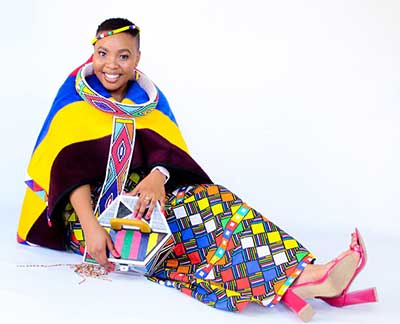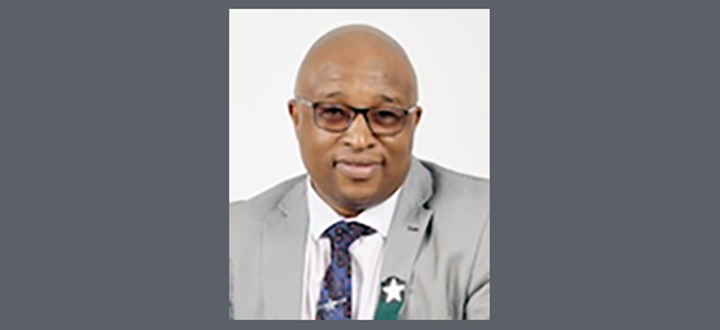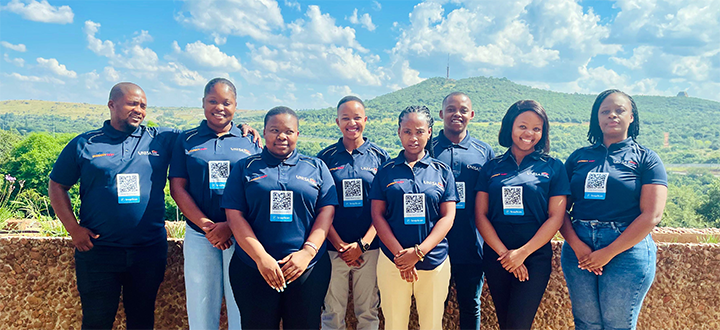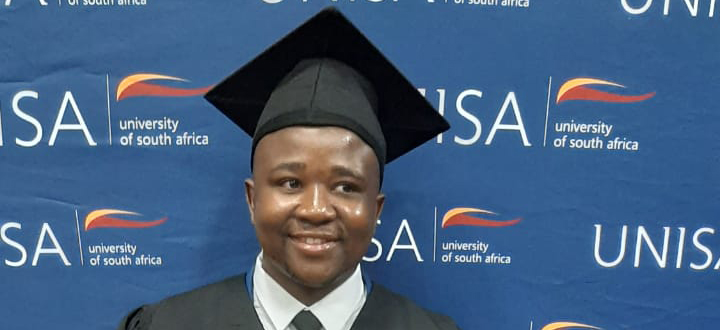Department of Science and Technology Education
Embracing my culture through my research

Ms. Thuli Gladys Ntuli, Lecturer and PhD candidate in the Department of Science and Technology Education, specialising in Natural Science Education
My name is Thuli Gladys Ntuli. I was born and raised in the beautiful province of Mpumalanga, Kwa-Ndebele, in a small village called Mabuyeni. I grew up in a house filled with love, where I stayed with my mother, uncles, aunts, cousins and grandparents.
As far as I can remember, I have always been very interested in science. This led me to pursue a teaching qualification in Natural Science at the Central University of Technology in Free State. I then furthered my studies by completing my BEd Honour’s degree (Cum-Laude) at the Tshwane University of Technology and Master’s degree at the University of South Africa, specializing in Natural Science Education. I am now a Lecturer and Ph.D candidate in the Department of Science and Technology Education.
My research interest stems from the love I have for my Ndebele culture. I am a proud Ndebele woman, who wishes to see her culture and language take centre stage on a global scale. My culture is important to me. It defines who I am, where I am, and where I am going. So, having to see Ndebele learners learning science in isiNdebele would be a breakthrough for me. Hence, my research goal is to see learners from the deep rural areas of Kwa-Ndebele learning science in their mother tongue, which is the language that they best understand.
Learners from my village have difficulties understanding the English language. Based on studies conducted in South Africa, research shows that many second language learners tend to have challenges regarding learning science in English. This is because learners are not exposed to English in their homes but communicate in and are competent in their own home languages. And so, they experience a lack of support from their parents as their parents are unable to understand or speak the English language. This means that learners have trouble in comprehending the content knowledge of the subject, and as a result this adversely affects their academic performance. There is therefore a need for learners to learn in their home language. This, in my view, will also enhance their understanding. It is therefore not necessarily about finding assistance for them to learn in English but in their home language. Learning science in one’s home language is part of decolonization of education.
Africa is moving in the direction of decolonizing and Africanizing education. Doing so will embrace our cultures and languages by bringing our heritage to the whole world. I am proud to be part of this amazing transformation project. If the Chinese can do it with pride and still produce some of the best technological and scientific innovations in the world, Africa can do it as well.
I want to follow in the footsteps of the likes of Ms. Thulisile Bhuda, a Ndebele Mathematician who specializes in ethno-Mathematics. She aligns the Ndebele graphic patterns and bead work with Mathematics, which is something that is very new and exciting to me. And yes, I am a part of such an exciting transformation agenda.
#Moleboheng Ramulumo
Publish date: 2021/09/23

 Accounting pundit appointed to lead Unisa's College of Accounting Sciences
Accounting pundit appointed to lead Unisa's College of Accounting Sciences
 World Social Work Day: A shared future for transformative change
World Social Work Day: A shared future for transformative change
 Unisa partners with Palabora Mining Company to create research-based solutions
Unisa partners with Palabora Mining Company to create research-based solutions
 Unisa’s student leadership takes debt bull by the horns
Unisa’s student leadership takes debt bull by the horns
 From medical scrubs to legal robe
From medical scrubs to legal robe